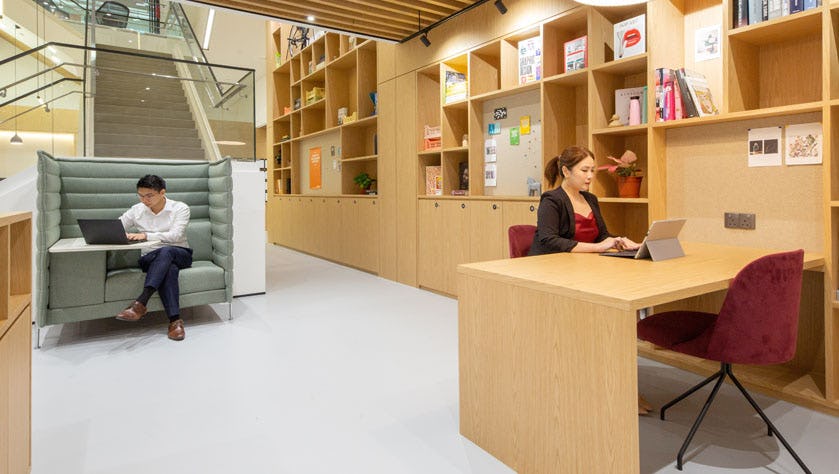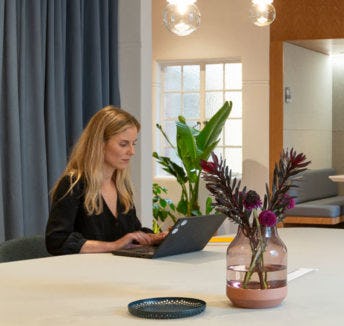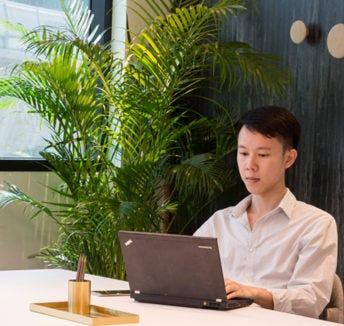
The pandemic showed many businesses that they could function with a team of remote workers. However, if you want to do more than just function in the future, now is the time to prioritise the development of your company culture
Before the pandemic, a study published in Harvard Business Review showed that a quarter (24%) of employees said all work in their organisation was currently carried out in the company premises – suggesting a cultural barrier blocking remote working. And while the events of the last few months have shown work can happen anywhere, there may still be some mental barriers to businesses adopting the state permanently.
How can leaders build and develop company culture with a fully distributed team? Here, the experts share their recommendations.
Define your company values
“Our research tells us that among the values exhibited by strong cultures are collaboration, agility, integrity, people-centricity, innovation, accountability and ambition,” says Marc Berman and Tracy Thurkow of Bain & Company. “Companies that exhibit a winning culture, that have a strong internal compass and inspire their employees, are, we have found, 3.7 times more likely to be business performance leaders.”
Foster a culture of positivity
“There are a thousand ways to do remote work, but it starts with committing to it at all levels of the company,” says Matt Mullenweg, founder of Automattic. “If you assume positive intent and place trust in your co-workers and employees – knowing that if they do great work in an office, they can do great work anywhere – then you will all succeed.”
Speak regularly
“Check in frequently and consistently,” advises Joseph Grenny and David Maxwell in Harvard Business Review. “Nearly half of respondents in their research said the most successful managers checked in frequently and regularly with remote employees. The cadence of the check-ins varied from daily to biweekly to weekly, but they were always consistent and usually entailed a standing meeting or scheduled one-on-ones. Don’t leave your remote employees alone; make sure you are in touch with them often.”
Share knowledge
“Many of your team members possess specialist knowledge that is easy to share in the office, but more difficult to do remotely,” says Thea Watson, Marketing Director of Hays UK&I. “Perhaps get one of your employees to create a PDF, webinar or podcast on their specialist subject. This could be a unique opportunity to encourage your team to appreciate one another’s value and really understand the strength of their contribution. Ensure that this is followed up with recognition and public praise of team members.”
Empower your team to be productive
“Being very clear about work expectations, deadlines and management style will go a long way in creating a productive work environment for a remote team,” says Jia Wertz in Forbes. “Not only is it important to be considerate of everyone’s time zones, it can actually work in your favour if you line up certain tasks to maximise productivity. For example, my web development team is overseas and therefore they work the opposite hours from those of us in the US. So, I always ensure our web developers have all new artwork, images, and copy they need for new launches or website updates the day before the roll out. When we get into work the next day, the projects the web team worked on are complete, allowing us to do all the testing and launch the initiative much quicker than if the entire team worked in the same time zone.”
Create a buddy system
“Many remote companies offer buddy systems for onboarding – but they also implement them as a fun way for every to interact socially,” says Claire Lew, CEO of software company, Know Your Team in Signal V. Noise. “This can take the form of assigning someone an official ‘mentor’, with whom they have one-on-one meetings once a week… It could also include randomly pairing two to three people every week to have a fun video chat over something non-work related. Either way, carving out and designating a specific relationship that’s shared between people is a way to be purposeful about encouraging social connections on a remote team- rather than merely hoping that an informal connection will form on its own.
Physical distancing and prolonged isolation can impact your morale and productivity. That’s why Spaces has prepared its workspaces for the future, so you can feel safer when you meet, work and collaborate with like-minded professionals again. Let’s redefine how work is done. Find out more here.
Share this article
 Read now Cheat sheet: what business leaders need to know about digital transformation
Read now Cheat sheet: what business leaders need to know about digital transformation
 Read now Ask the experts: will we see a permanent shift towards remote working?
Read now Ask the experts: will we see a permanent shift towards remote working?